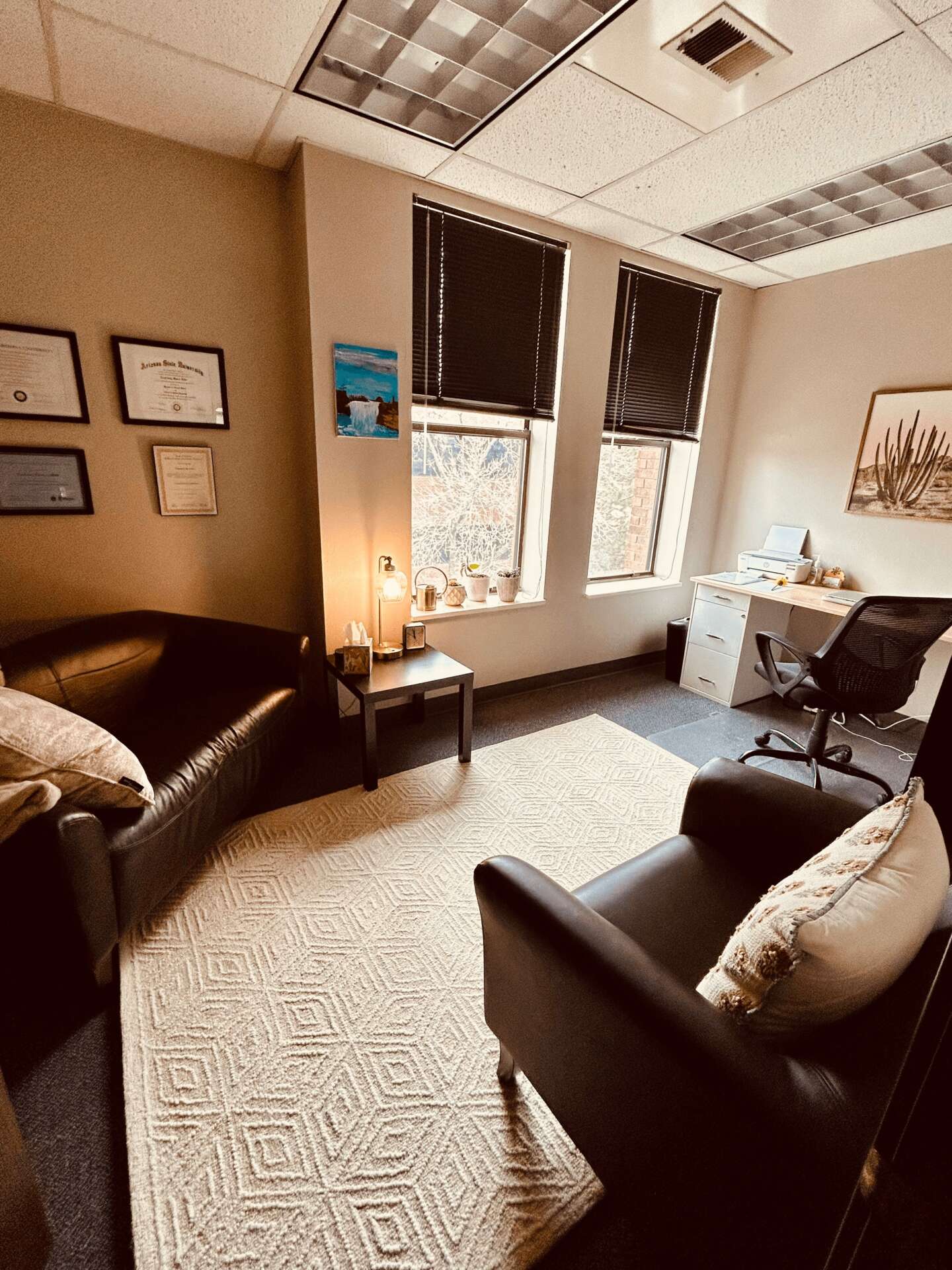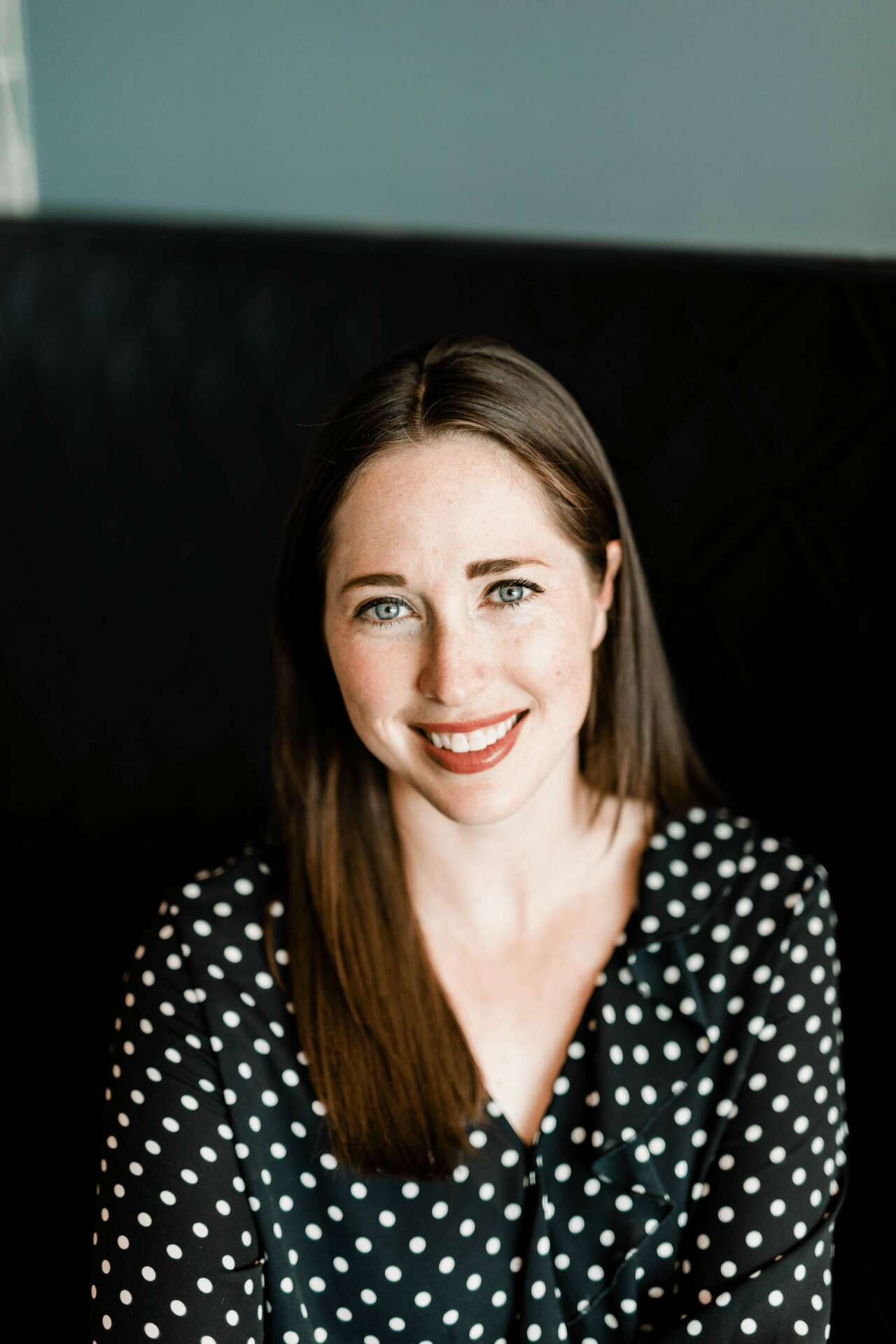We recently connected with Courtney Chott and have shared our conversation below.
Courtney, appreciate you joining us today. Can you share an important lesson you learned in a prior job that’s helped you in your career afterwards?
In the summer of 2018, my husband and I relocated to Kansas and I obtained employment at the VA Medical Center based out of Topeka. They needed a social worker in Manhattan, KS for their HUD-VASH (Housing and Urban Development- VA Supportive Housing) program. At the time, my only experience in social work was at the VA and this would have been my third position at the Va, across three different states. My husband had been in the Army for 4 years at that point, so it usually worked out that at each new duty station we were at, I would be able to continue my career at the VA.
I had been in this position before in Phoenix, AZ, so the idea of returning to it was comforting, yet exciting because it was going to be in a very different setting. I would go from a large city at one of the biggest VA Medical Centers in the country, to one of the smaller cities in Kansas.
Typically for a position as this, you would have a caseload of around 30 Veterans who had history of housing instability. If they were admitted into the program, they would receive a Section-8 voucher in order to obtain housing and you would be their case manager, meeting with them anywhere from weekly to monthly. This required a lot of resources and support not only for you as the case manager, but for the clients as well. These cases were complex, nuanced and multi-faceted, often requiring the support of a multi-disciplinarian team.
In Phoenix, the resources were plentiful because you worked at the hospital. At Phoenix alone, they had over 20 different social work programs, in addition to the help of the medical staff, and the community resources in Phoenix. For example, if I had a Veteran who was suicidal, I could take them directly to the VA hospital, visit them, and insure that they were receiving adequate treatment.
In Kansas, I learned on my first day that I would be replacing the existing social worker and would be covering the entire city of Manhattan, as well as providing support for the other social worker at the next town over in Junction City. This was concerning to me as the population at the time was over 50,000 for Manhattan, let alone the need in Junction City. I was also used to being on a team, and realized I would not have one there. I was the team. Lerning this role came with many curveballs, including relying heavily on community resources due to the lack of VA presence in the city. I was the presence. This also proved to be diffivult when I would have a Veteran reuiring immediate and emergent mental health services in the late aftrnoon on a Friday. This would mean that I would be the one to drive to the nearest VA Medical Center which was in Topeka, an hour and a half away.
This created a terrible work life balance, with me working well over the usual amount of a salaried employee. I experienced something I had not before in my 5+ year career at that point, which I know now as burnout. Doing notes at home, skipping meals, running myself ragged to keep up with the demands of the position.
I started this position in June of 2018, then in July just two days after my 27th birthday, I received a diagnosis of melanoma. Skin cancer on the surface didn’t seem scary, but the further I went down the path of seeing providers, the more I learned. I eventually learned that the cancer had spread to my lymph nodes and I officially received the diagnosis of stage III metastatic melanoma. My job provided limited support and questioned my need for FMLA. Because of my diagnosis, I would need to go through monthly immunotherapy treatment for one year. The closest and hospital with the best reputation for treating melanoma was in Colorado. Therefore, I had to drive from Kansas to Colorado (about a 7 hour drive) and stay for a week, getting treatment, recovering and driving back.
After the first couple treatments, I learned that I was allergic to the immunotherapy drug, which required me to be on Benadryl beforehand, which then left me exhausted and unable to transport myself to and from the treatments. We learned at this time that my husband was to deploy to Afghanistan for 9 months, so I was left figuring out how to maintain my employment, take care of myself, and go through with the rest of my treatments alone.
I decided in December of 2018, that I would leave my position and focus solely on my treatments. Luckily we had family available to help take care of me during this time. It was the first time I had left a position and felt extreme guilt leaving, especially after only 6 months. These clients were used to turnover and I didn’t want to be another disappointment in a time in their lives when they needed support and consistency. I realized that on top of being burnt out, I was not taking care of myself during my treatments and was not receiving adequate support from my employer. I also realized that I was not providing the best support to my clients, since my mind was elsewhere.
Saying no, setting boundaries, and putting myself first was not something I was comfortable with and struggled with the guilt for a while. I also struggled with the idea of pausing my career and it not going on the trajectory I had imagined for myself. Would I even have a career after this? These questions were all difficult ones that didn’t have answers at the time. So the lesson I learned was to put myself first, set boundaries, focus on my health and then you can show up as the social worker your clients deserve and you can pivot in your career.

Awesome – so before we get into the rest of our questions, can you briefly introduce yourself to our readers.
I have always been interested in not just what people think but why and the stories behind them. I knew of psychology and thought I would get my Bachelors in that and move on to becoming a psychologist. I then met with my guidance counselor in college and they said, “Have you ever heard of social work? It’s kind of like psychology, except you can actually get a hjob.” The practical side of me loved this and thought I could do social work and eventually figure out what I wanted to do with it.
Because of my family and my husband, I had always been interested in working with Veterans. I knew from the moment I could choose my internship, I wanted to work for the VA. So I started there in my masters program and was there until I chose to go into private practice.
I primarily work with people who have experienced trauma and provide individual and couples therapy.
Putting training and knowledge aside, what else do you think really matters in terms of succeeding in your field?
I believe whole hearteduly that you learn by working with clients first hand, and by doing things that scare you. I have always put myself in positions that seem challenging or that I know close to nothing about, or that terrify me. I have found that I learn the most this way and usually end up loving whatever I forced myself to learn about.
Have you ever had to pivot?
Yes, I’ve had to pivot many times. With military moves, a cancer diagnosis, a pandemic and staying home to raise children, I have appreciate the flexibility of my field.
Contact Info:
- Website: https://palmerpsychology.com/
- Linkedin: https://www.linkedin.com/in/courtney-chott-408759210
Image Credits
I have the rights


